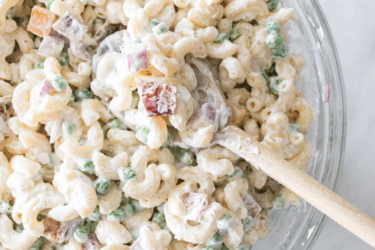Ever have one of those days when all you do is nag your kids? Ever have one of those weeks? What about one of those months? Are you looking down the road onward a lifetime of unproductive nagging?
 Sometimes it seemed like I was, and not knowing what to do but knowing for sure that our family – my husband and two daughters, ages 8 and 11 – needed a change was one of the reasons I recently found myself in a five-week course called “Redirecting Children’s Behavior” (RCB), a nationwide parenting movement overseen in Nashville by director Bill Corbett.
Sometimes it seemed like I was, and not knowing what to do but knowing for sure that our family – my husband and two daughters, ages 8 and 11 – needed a change was one of the reasons I recently found myself in a five-week course called “Redirecting Children’s Behavior” (RCB), a nationwide parenting movement overseen in Nashville by director Bill Corbett.
That’s What It’s All About
Based on the 1964 classic Children: the Challenge by Rudolf Dreikurs (Plume), RCB was created by educator Kathryn Kvols in order to give Dreikurs’ theories practical application. Central to the course is the basic assumption that children misbehave because they are trying to tell us something.
“As babies,” says Corbett, who is one of 10 accredited RCB instructors in
Middle Tennessee, “our children have very basic needs, such as nourishment, sleep, closeness with parents and a dry diaper. To communicate these needs, they cry.
As a child grows into the toddler years, her needs expand to include a desire for attention, a feeling of being powerful and a yearning to be valuable to and heard by the most important people in her life: her parents. Young children have not yet learned how to ask for what they want, so they attempt to get their needs met through acting out. We see this as misbehavior.”
The primary goal of RCB is to help parents view children’s misbehavior as an attempt to communicate, and then decipher the message. At first, this might seem too hard – why should we dig deeper and try to understand when our kids just need to get it together and act right? “If all parents ever do is put their attention to stopping the misbehavior,” Corbett says, “the child’s needs go unmet and the parents get trapped in a neverending battle with that misbehavior.
If the battle goes well into the adolescent years, when the child begins to disconnect from parents emotionally in preparation for adulthood, it could create an unhealthy foundation and trouble for self-esteem, the ability to create relationships with others and the relationship with parents.”
The Impossible Dream
Like many parents, I signed up for RCB with a mixture of excitement and
trepidation. I was reluctant at first to commit to one night (three hours) a week for five weeks – what working mother has that kind of time? – but when I considered the payoff, it seemed like a reasonable investment. Who wouldn’t want to redirect irritating behavior?
During the first class, as we went around the room and introduced ourselves, telling why we were there, I noticed that several people started off with “Our kids are great kids,” a testimony to the unspoken stigma attached to taking a parenting class. It struck me that more training is required for working the drive-thru than for raising a child.
We moved on to the goals of the course, and they seemed a bit fantastic:
COURSE OBJECTIVES
On completion of the RCB course, you will have:
- Cooperative children.
- Children who promote agreement instead of fight- ing.
- Children with strong self-esteem.
- Children who seek appropriate behavior goals.
- A family that communicates and expresses feelings in a healthy, productive manner.
- Encouraged family members who support each other.
I didn’t see how these things could be possible after only one night a week for five weeks. Realistically, I thought, I might learn to be a little more patient with my girls.
Seeing Results
At the end of the first class, we were asked to write down (in our personal workbooks) one thing we wanted to change at home. Mine was “I would like to reduce the conflict.” We also wrote down what we would do differently during that first week. I resolved to “handle arguments between the girls without yelling.” At the beginning of the next session, Corbett asked us to share any successes we had had, no matter how small they seemed.
Almost everyone had a story of how they’d tried a new approach to an old problem. I had actually remembered throughout the week – well, at least once or twice, anyway – to keep what I’d learned in mind. Did I “handle arguments between the girls without yelling?” Not so much, but I was encouraged enough to keep on trying.
By the second week, my husband had begun to notice a difference, and so had my children. One day my oldest daughter, suddenly aware that I was just a little more empathetic and attentive than usual, asked, “Did you learn that in your parenting class?”
What was beginning to seep into my behavior was an understanding of the two concepts Corbett says parents find most difficult to grasp: 1) Much of the behavior parents find annoying and frustrating is perfectly normal; and 2) Unconditional love is the way to go when applying discipline. “It’s a parent’s job to set firm boundaries and keep them,” says Corbett, “and it’s a child’s job to test them and determine if they are real.”
But what does it mean to demonstrate unconditional love? Corbett gives these examples:
- Allowing your children to ask for things as often as they want, but not giving in and not getting angry that they’re asking.
- Teaching and allowing them to say “no” to you and others in a kind and respectful way.
- Detaching from the squabbles and fights that erupt between them and their siblings.
- Not getting angry when they spill their milk at the dinner table; viewing it as an accident rather than a mistake.
- Remaining calm and not demanding they open and close their bedroom door 10 times after they slammed it because you wouldn’t allow them to stay out late.
- Letting them have the last word when they get mad at you for not buying them the toy at Wal-Mart you didn’t want them to have.
- Saying nothing and not forcing them to apologize after they yell, “I hate you!” when you wouldn’t let them go to the mall with their friends, and understanding that saying they hate you really means “I’m mad at you.”
- Going to your own “parent time out” when you don’t know what else to do in response to their behavior, knowing that spanking might be your reaction if you remain in the room any longer.
“We parents usually have difficulty understanding” unconditional love,
Corbett says, “because it wasn’t modeled this way for us by our parents when we were children. Instead, our parents most often loved us when we were behaving the way they wanted us to behave.”
Renee W., a mom in my class, says RCB taught her to be more understanding of her daughters’ feelings and thoughts. “I want to value what opinions and actions they have,” she says, adding that since attending RCB, “I have been more calm around (the kids) and tend not to get upset at little things that upset me in the past.”
What makes this turnaround possible is the RCB secret: it’s called “Redirecting Children’s Behavior,” but it’s really about redirecting your own.
After all, that’s the only behavior you truly control. In examining my own parenting style, I discovered I was using several not-so-helpful techniques I’d learned from my childhood. Replacing them was easier once I learned there were other options.
“The most important thing a parent learns in the course,” says Corbett, “is the ability to understand why a child acts out and misbehaves, and what specific discipline methods to use to help that child become cooperative, confident and develop high self-esteem.”
Though it had sounded impossible on that first night, by the end of five weeks my children WERE more cooperative, and so was I! Sure, I’ve had many lapses since then, and I need to continually remind myself – as Kvols writes in the course manual – that I am “unlimited in power, peace and love,” but overall the lessons I’ve learned are in my heart for good.
Doing the Impossible
Mother Theresa once said, “Today, parents have less time for their children, less time for each other, and in the home begins the disruption of peace in the world.” Taking the RCB course helped me to see my children in a light of acceptance and love without conditions, and to encourage rather than discourage them. I know that the example I set for them now is the first step toward making the wider world a better place. As children who have learned negotiating and peacemaking skills grow up and enter the arenas of business and politics, a
change for the better will occur. It may be easier said than done – but it is possible!
Ashley Crownover is managing editor for this publication.
The Importance of Being Dad
An engaging, entertaining speaker who uses stories about his children to
illustrate the concepts in the Redirecting Children’s Behavior course (RCB), Bill Corbett says he always knew that he had a calling to help children and parents. A father of three, Corbett came upon the RCB website in 1994 while searching for parenting information for his family. “Having been raised the oldest child of eight in an abusive home,” he says, “I was determined not to repeat the mistakes my parents made.”
Now the director of RCB Nashville, Corbett says his focus “has always been on creating a loving and nurturing environment that would allow my children to grow to their full potential.” Teaching and promoting RCB all across the country has allowed him to share that philosophy with others.
Corbett admits his children sometimes view the program with mock suspicion. “My two teenage children who are still at home think it’s weird,” he says, “but my oldest daughter has two small children of her own, and she thinks the concepts are wonderful. I enjoy watching her using these firm and respectful discipline methods with my 4-year-old grandson and 2-year-old granddaughter – all the redirecting concepts I used on her during her teen years.”
As a parenting educator and a father, Corbett believes that being a great Dad requires three things: “1) Making it a priority to balance and manage your time to be available to your children; 2) living a life of integrity that sets an example for your children to live from; and 3) treating your children’s mother with respect, in both your actions and words.” Spending special times with Dad and learning from his example are key to helping children develop into loving, caring adults.
Despite his teenagers’ occasional skepticism about RCB methods, Corbett knows they appreciate them. “Many times,” he says, “they have asked me to find a way to get a friend’s parents into a future class. They tell me all too often how a friend or school mate will say to them, ‘I wish I had a dad like yours.'”




